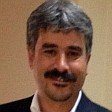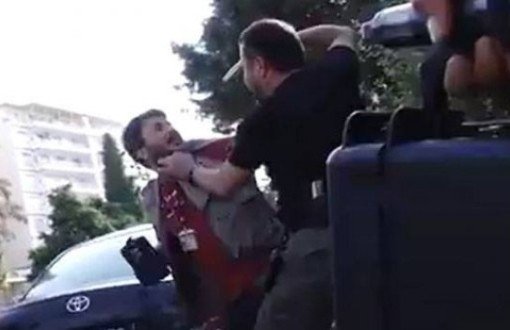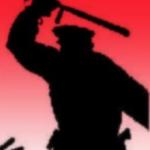Peoples' Democratic Party (HDP) Co-Chair Selahattin Demirtaş is a bit angry nowadays and there are intelligible reasons behind it. There is no need for sophisticated studies to reveal the sources of the anger which the young chair, who is labeled as "debonair politican" -it is true though- by the Turkish media that loves stereotypes, cannot hide anymore.
For instance it is a reason of the anger that the assembly, which they entered with 80 representatives by crushing the election threshold that is a heritage of September 12 constitution, was nullified by "snap election" decision...
Or instead of conducting campaign works, engaging in a tag with law enforcers in the entrance of the cities under siege, going from hospital to hospital with the civilians who are victims of conflict and of course the most dramatic reality of this process, condolence visits...
One of the instances which the "anger" in question that is mentioned at the beginning of this depressing article found its tongue was reflected in the cameras the other day. "Reflected in the cameras" is just figure of speech, a cliche of keyboard habit.
The anger was a bit related to the fact that what cameras shoot are not reflected in the screens. Selahattin Demirtaş called out in Silvan where has become one of the stands of the long-lasting murderous curfews. He was angry about another young man be massacred brutally on his leave from the condolence visit of 17-year-old Vedat Akcanım who lost his life in the attacks launched during the 4-day-long curfew. He was angry with the Justice and Development Party (AKP) which he regards as responsible of the war, and according to him the ruling party didn't have any political correspondence in the region.
As Demirtaş not belaboring finishes his talk voiced another source of his anger. He said "The AKP remains standing by means of special execution teams" and added that "Turkey's west also will not be able to hear most of my speech here because shootings of 15 of the 20 cameras here will not be able to televise."
Those who wonder the media embargo inflicted upon the HDP may take a look at Şirin Payzın from CNN Türk. Those who are not contented with that may glance at what has overcome Ahmet Hakan who tried to flout this meaningless ban in his own ways.
It isn't pleasant, is it? Another unpleasant event took place in lonely and beautiful Turkey's political climate in which this bleakness has been largely discussed. Bianet readers should know; this incident happened to the cameras that would televize the shootings Demirtas mentioned.
Police maybe didn't pull the trigger because of shrieking of the other witness of the incident, HDP Deputy of Diyarbakır Sibel Yiğitalp. The journalists were takin into custody and released 5 hours later after they were taken to Silvan Police Department.
The story, which is a Kurdish city cliche until this point, got weirder. The young journalists coming face to face with death were punished let alone being the victims of it. The cover up was "violation of curfew." Two journalists now have to pay 208 liras each. If you are not afraid of wandering on the edge of death and have 208 liras for each day for the arbitrary curfews, then there is no obstacle before doing journalism.
This unpleasanat incident and afterwards happened to the journalists whom I believe receive humble salaries because of the limited sources of the organizations they work for has reminded me the story of cagy thief.
The young man catches out the thief and calls out to his father, "Dad, I got the thief." His father says "Bring him here son" but as the thief gets stubborn, the young man calls out again and says "he is not coming." "Let him go then," says his father and his son responds "I released him but he doesn't let me go."
In the incidents like this, which would cost the posts of whoever is responsible in other countries, the victims are made to pay the price.
Now I am curious, how much will Ahmet Hakan, whose nose and ribs got broken in the attack carried out because he took HDP deputy Altan Tan on TV, be fined? (YK/HK/TK)
Click here to read the article in Turkish







